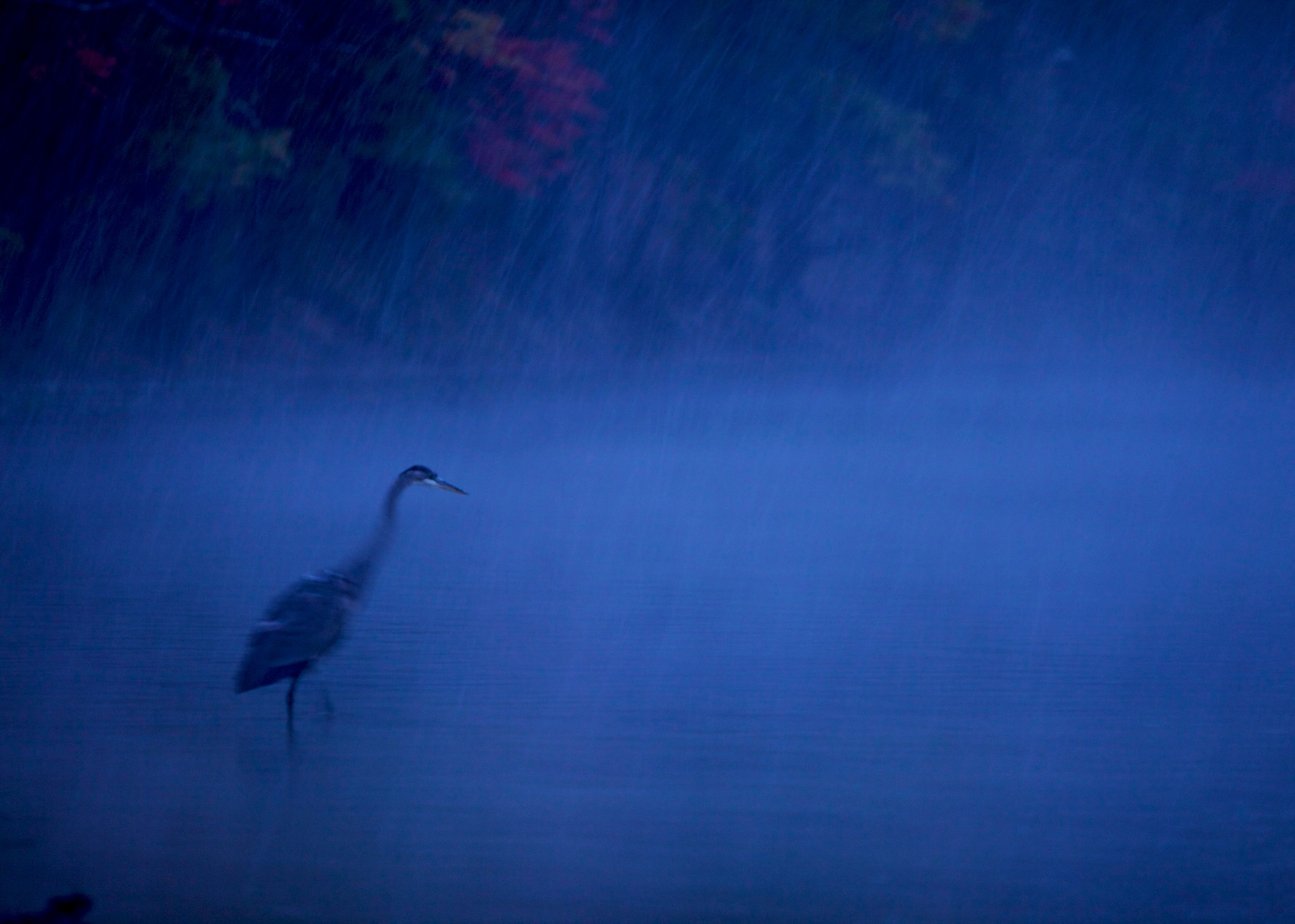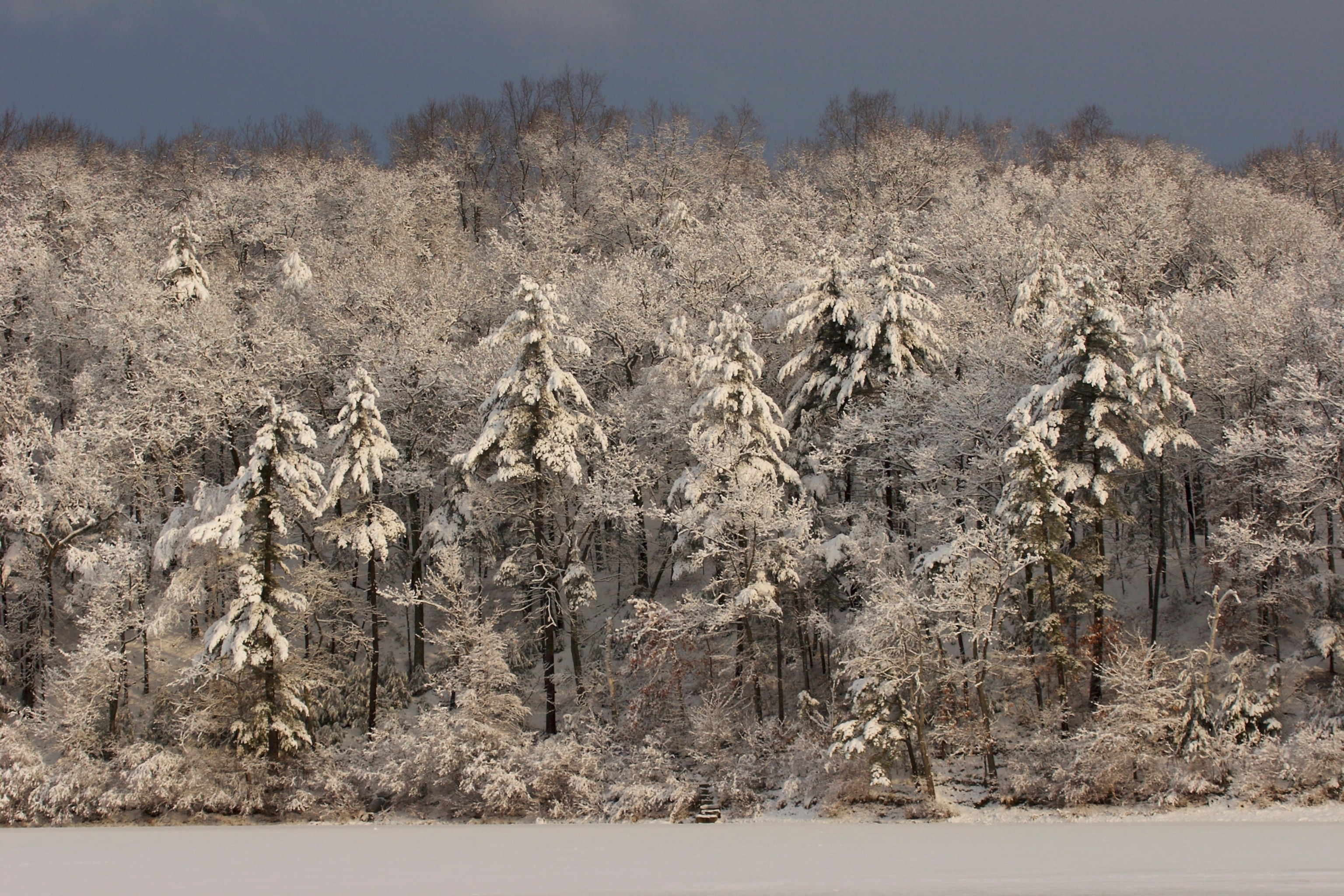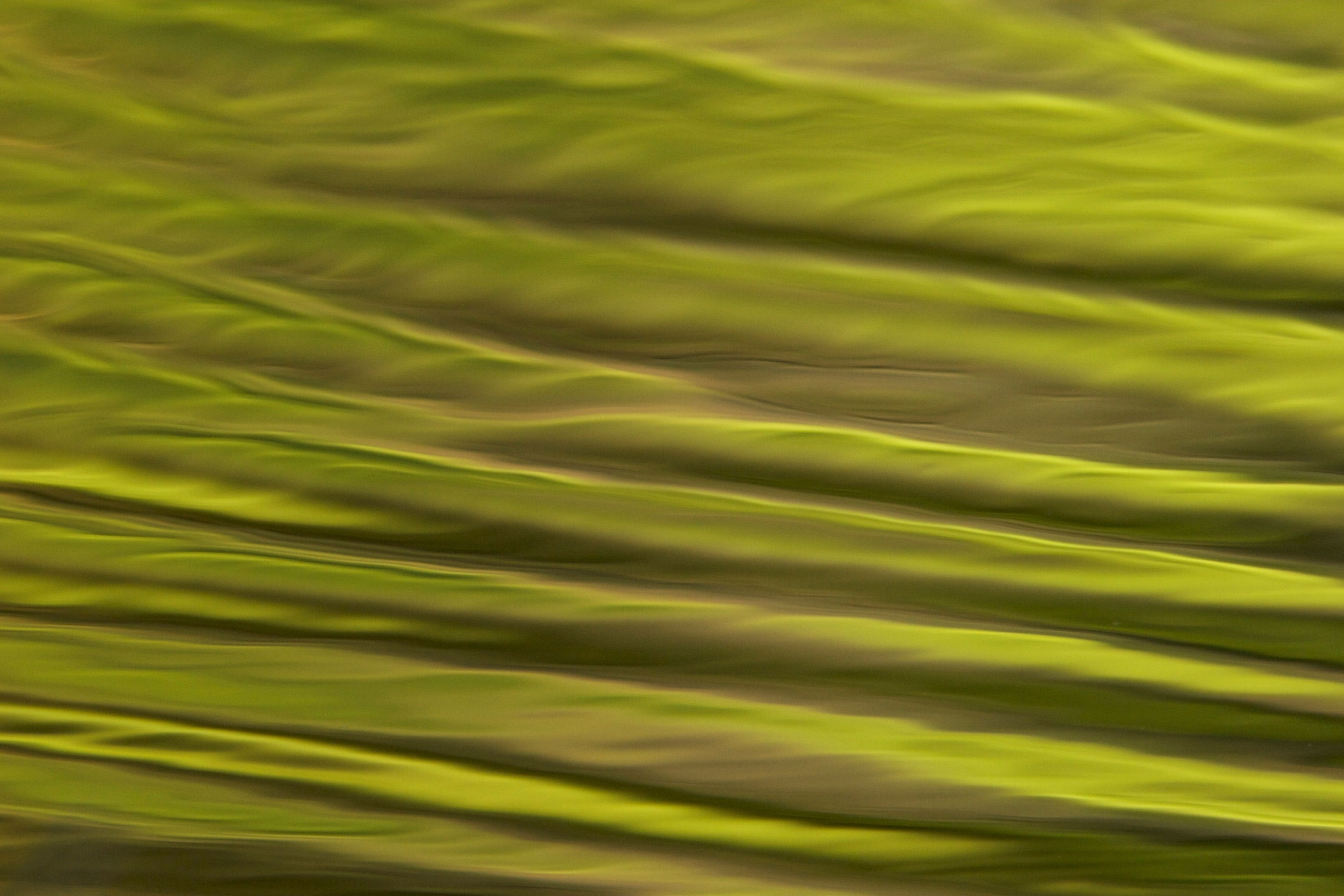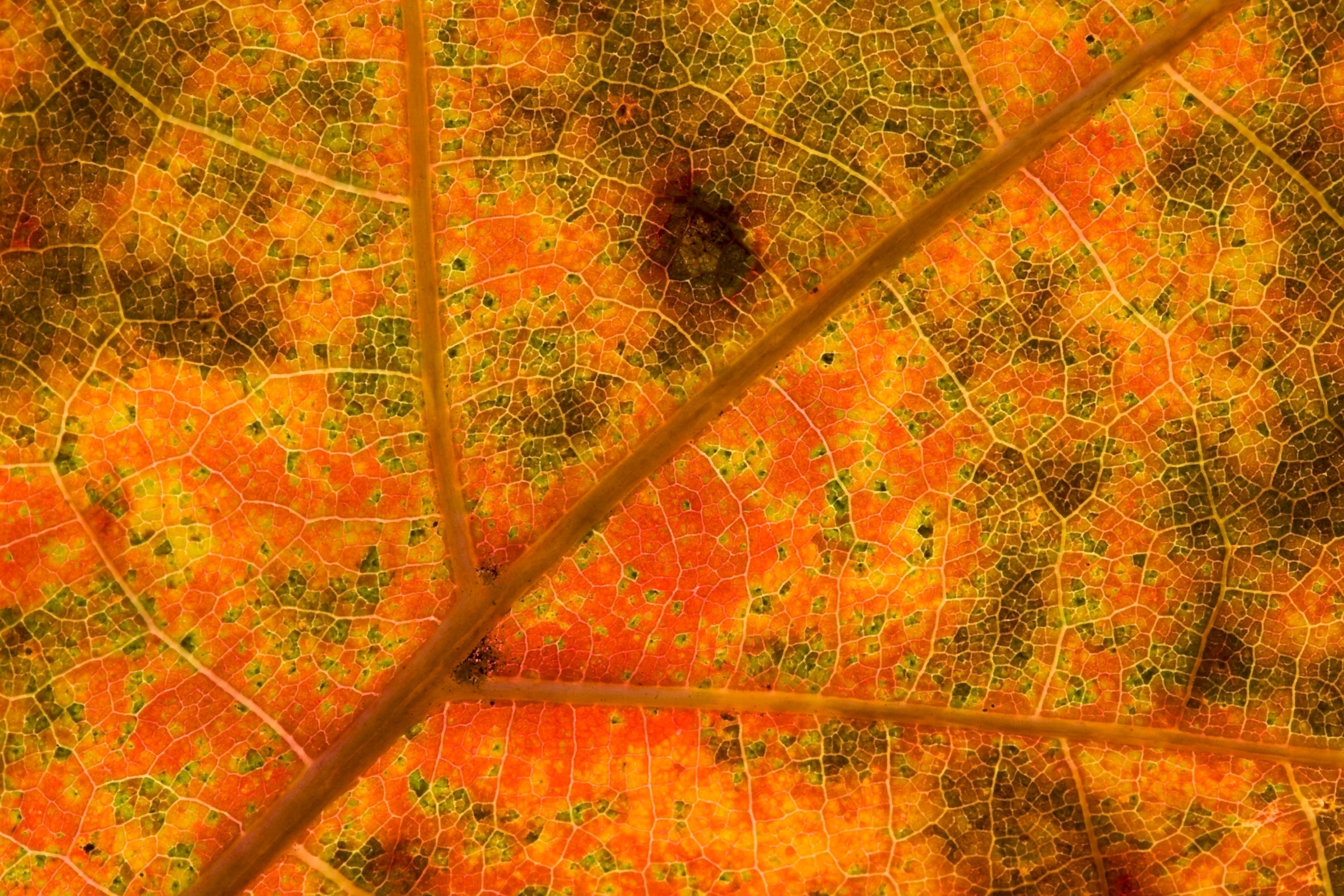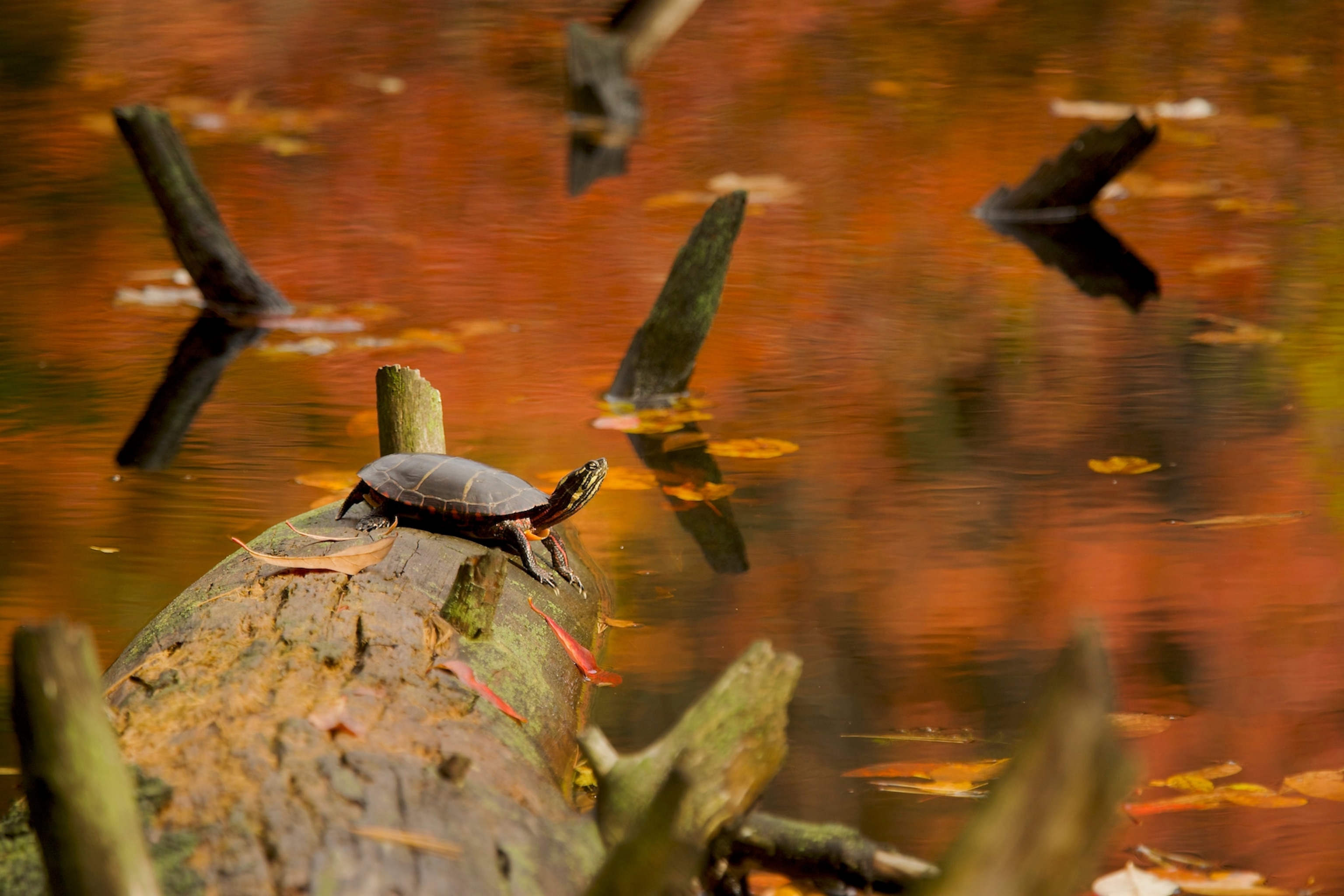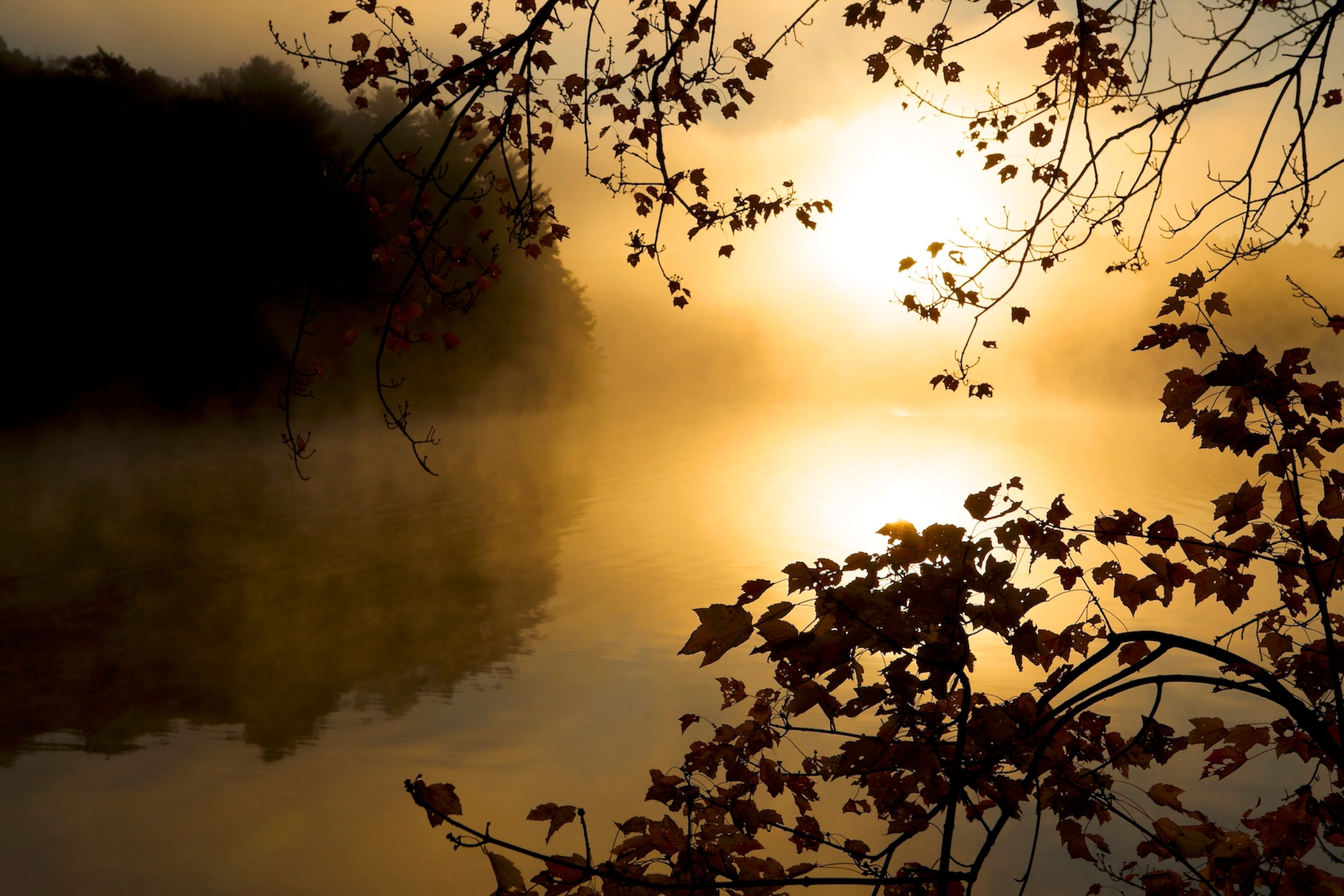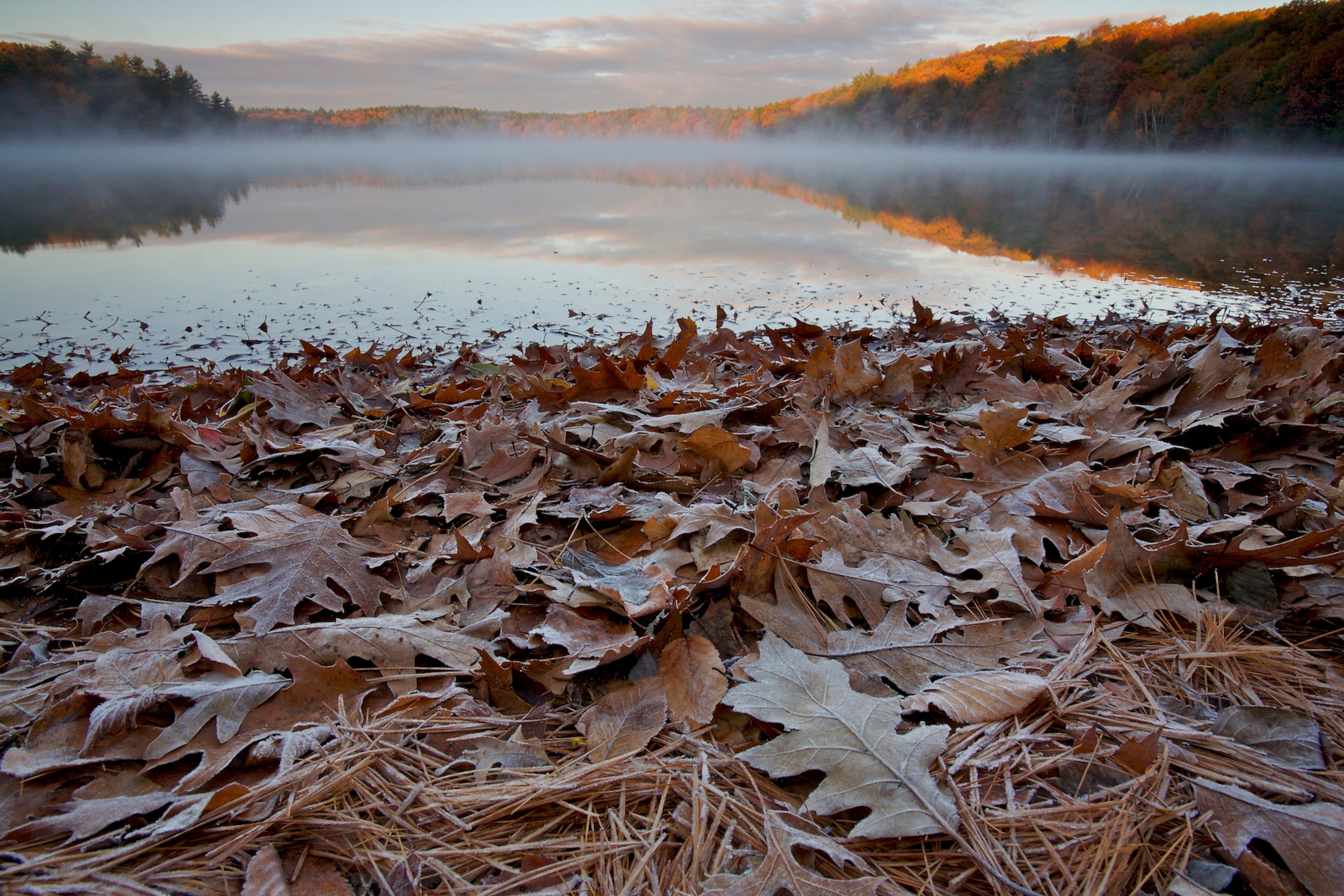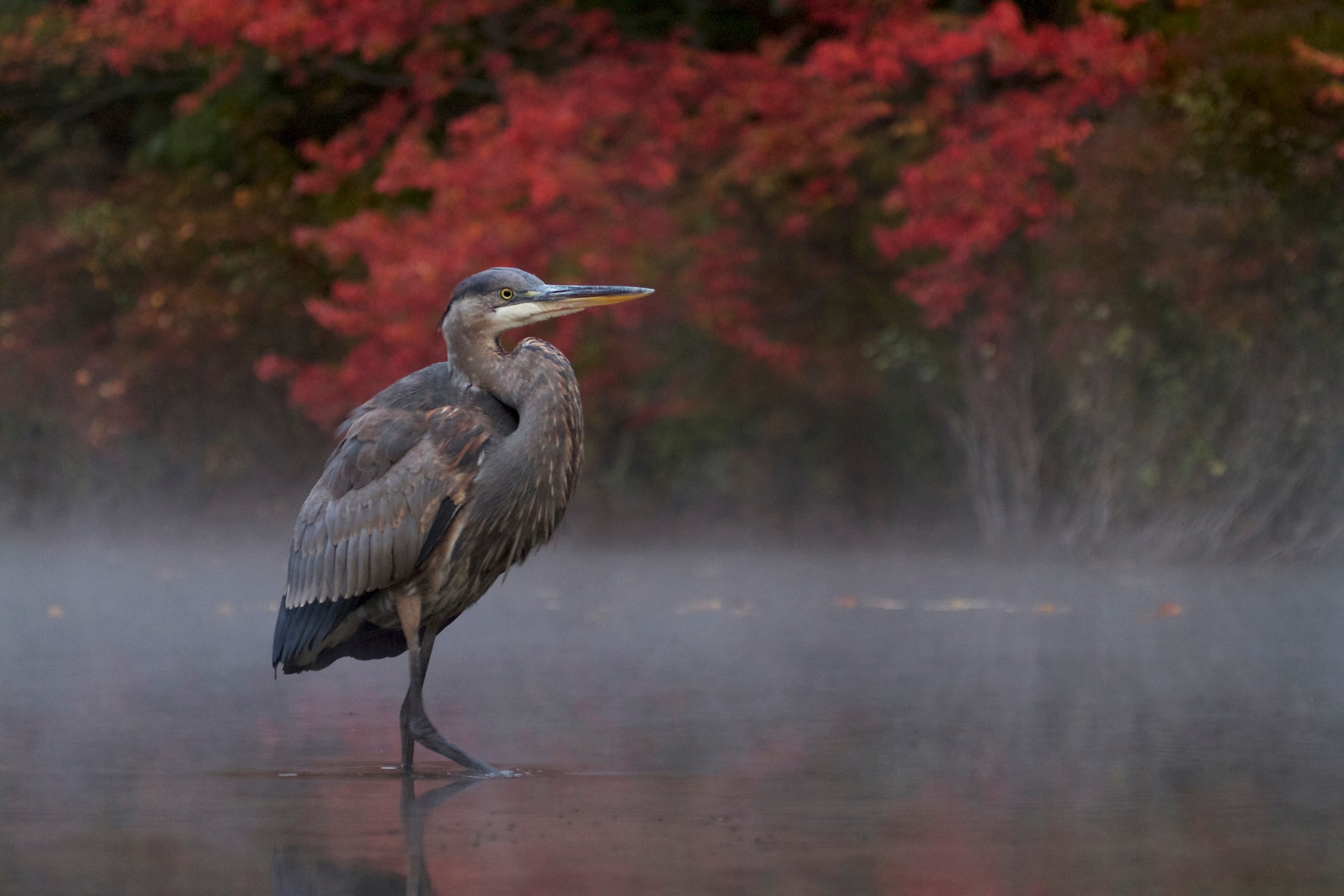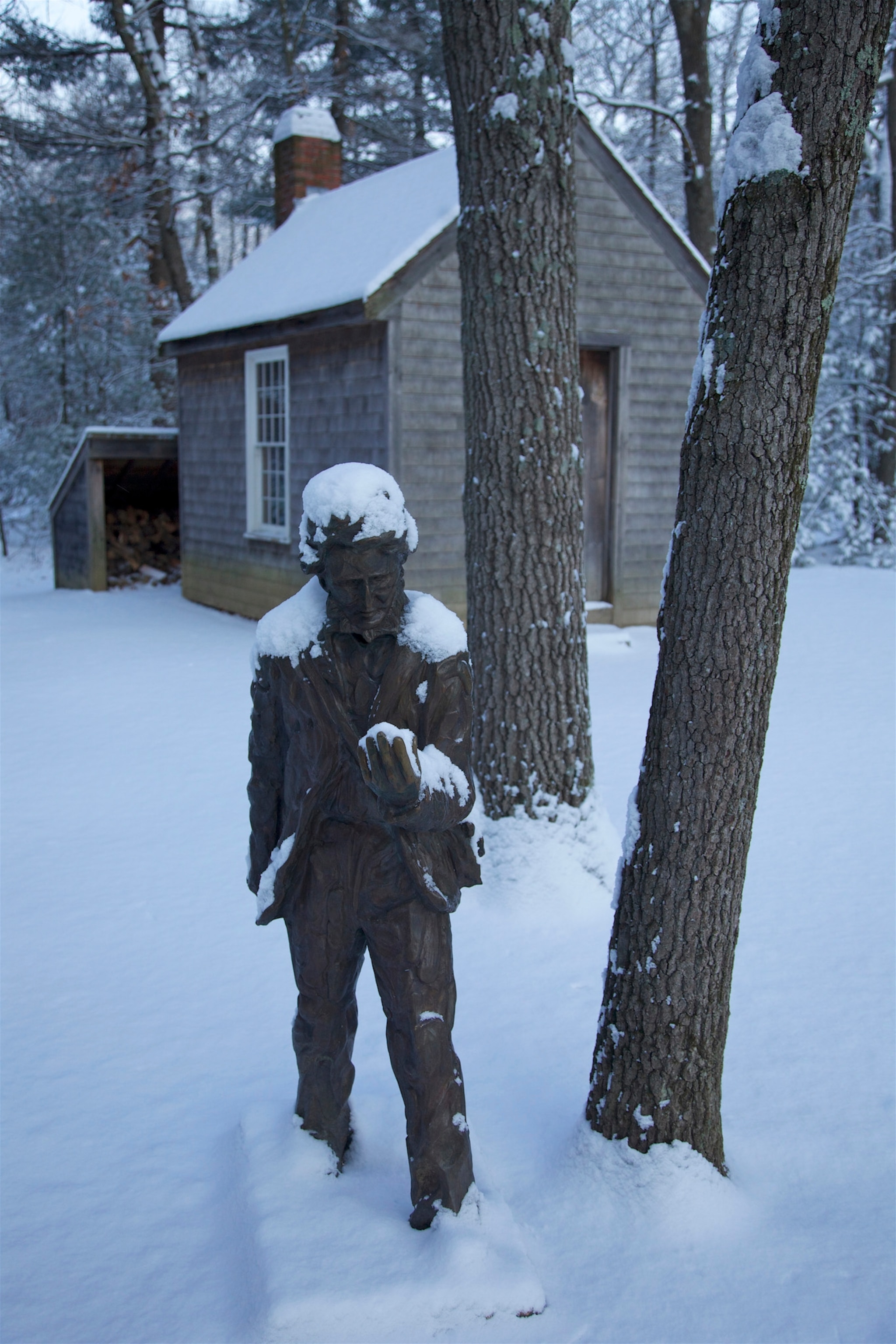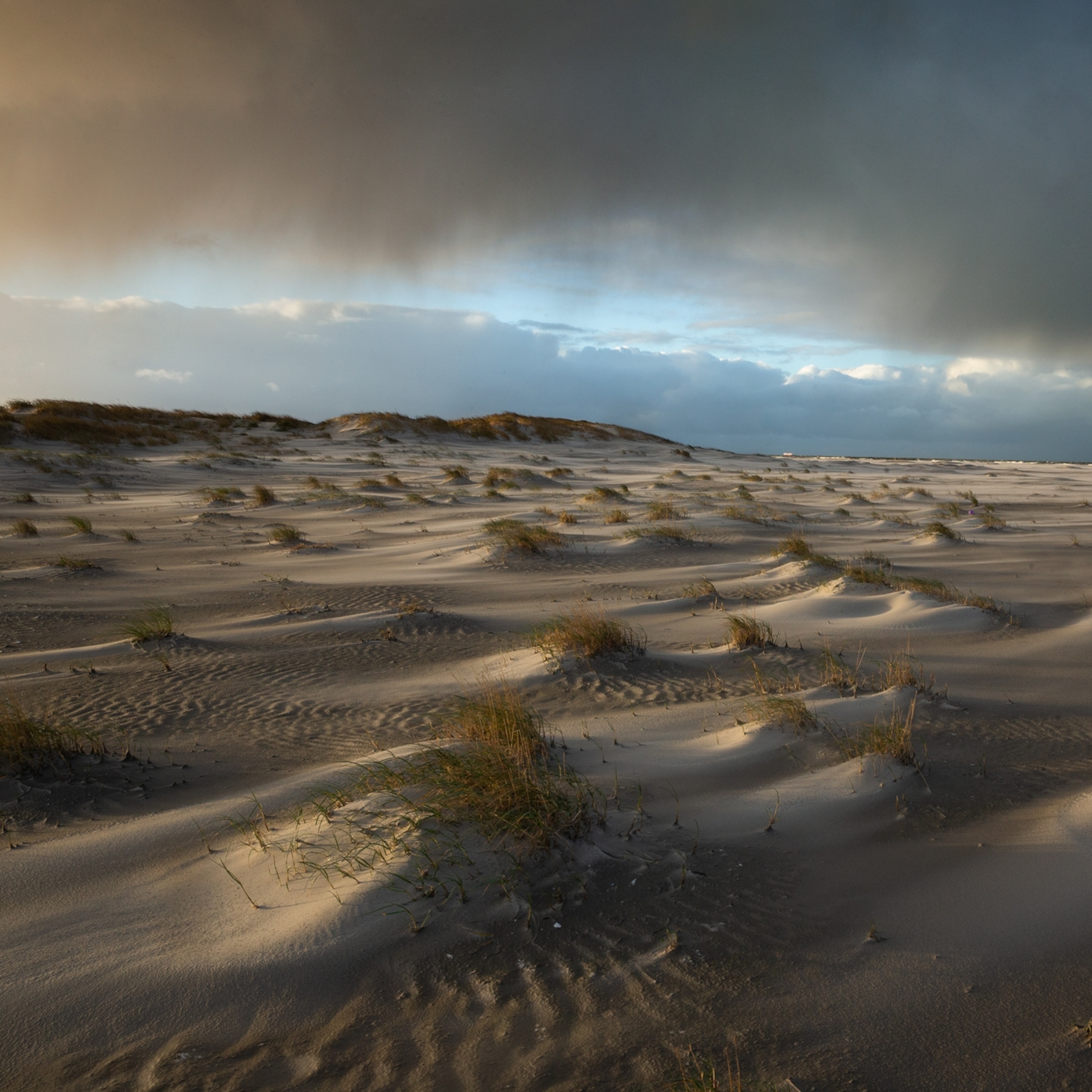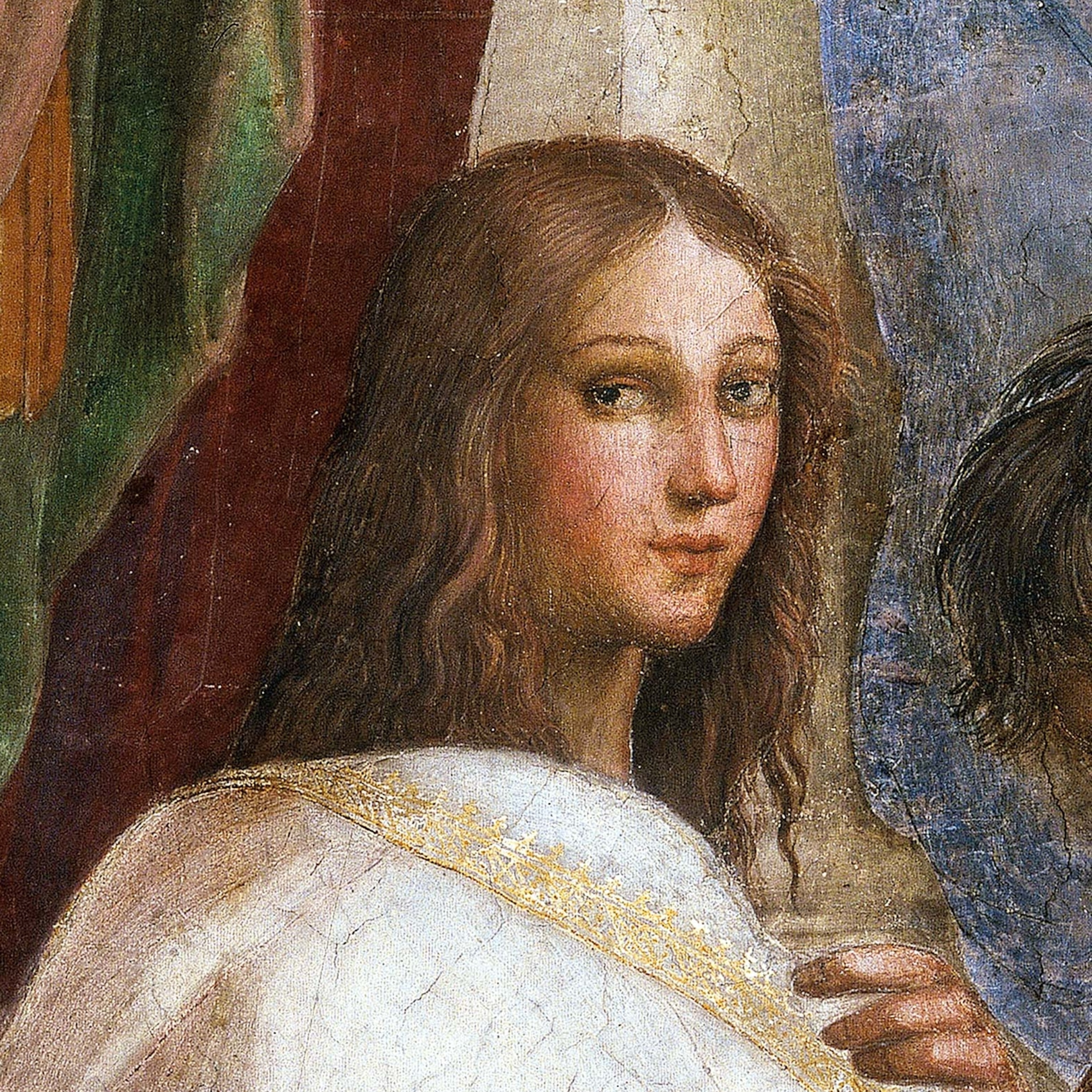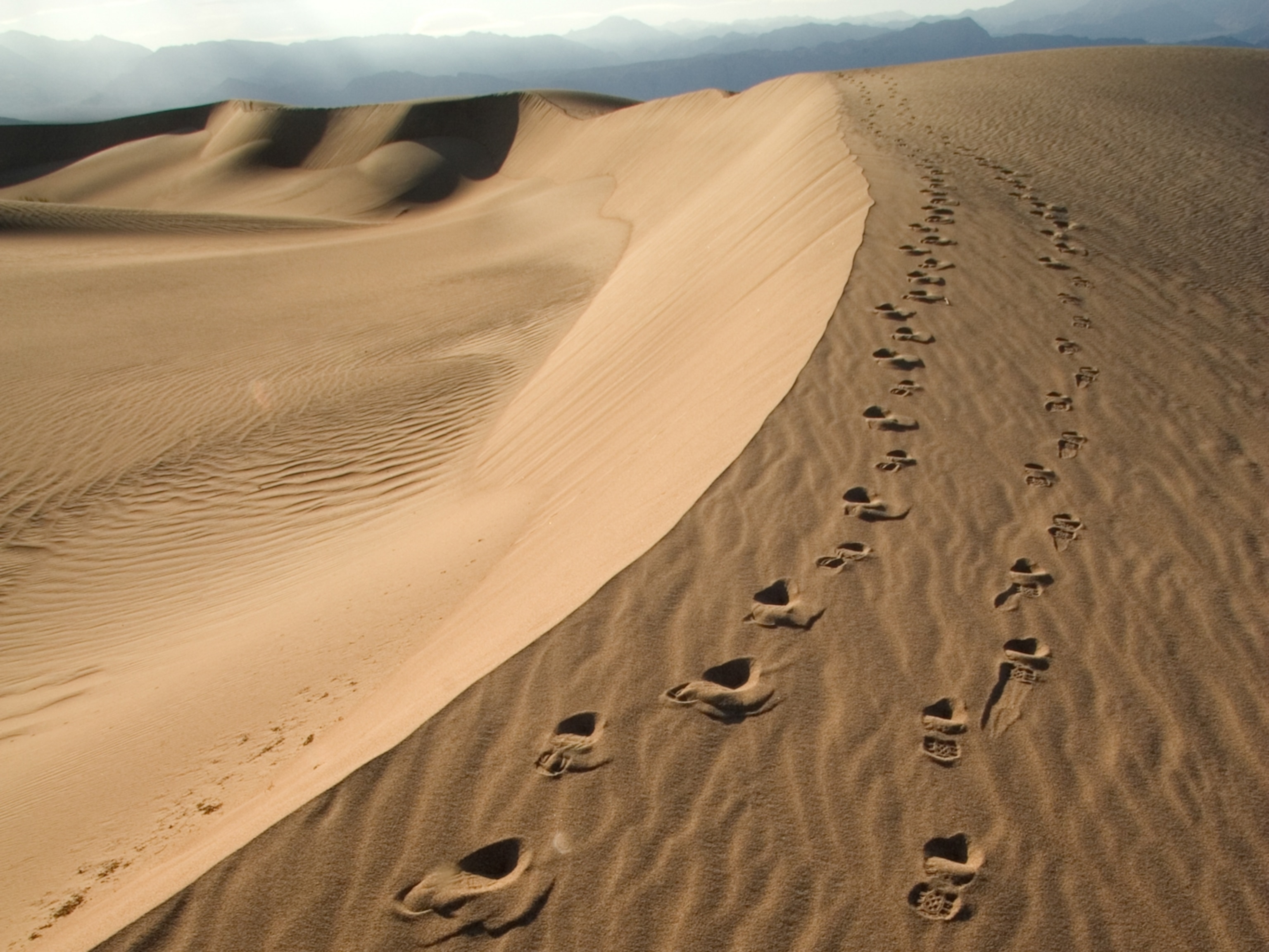See Why Thoreau's Walden Still Inspires
On his 200th birthday, a pond in Massachusetts, a creek in New Zealand, or a walk in the woods will do to remember the champion of wildness.
It was early June, still too soon for the summer influx of beachgoers and holidaymakers, when I visited America’s most famous pond. The only people besides photographer Tim Laman and me were a few hardy swimmers, wetsuited against the cold, and a lone sculler taking in the morning freshness. Walden had the air of solitude its resident thinker, Henry David Thoreau, so greatly prized—despite the hum of commuter traffic through the trees.
We made a circuit of the pond looking for wildflowers to photograph, and Tim was rewarded with a photogenic pair of pink lady’s slipper orchids not far from the walking path. I peeked through the windows of the replica of Thoreau’s cabin in the woods with its three chairs—“one for solitude, two for friendship, three for company”—and added a stone to one of the memorial cairns near the site of the original hut, where an inscription marking the old fireplace quotes a line from a Thoreau poem, “Go thou my incense upward from this hearth.”
More than wood smoke drifted from Walden’s 19th century shore. Thoreau built his cabin here in 1845 as a place to write, and a river of thoughts and words began to flow, continuing for 17 years until his death. (Even the circumstances of his death were quintessentially Thoreau: He contracted bronchitis while counting tree rings in a rainstorm. He was only 44.) Two hundred years after his birth on July 12, 1817, his words still resonate.
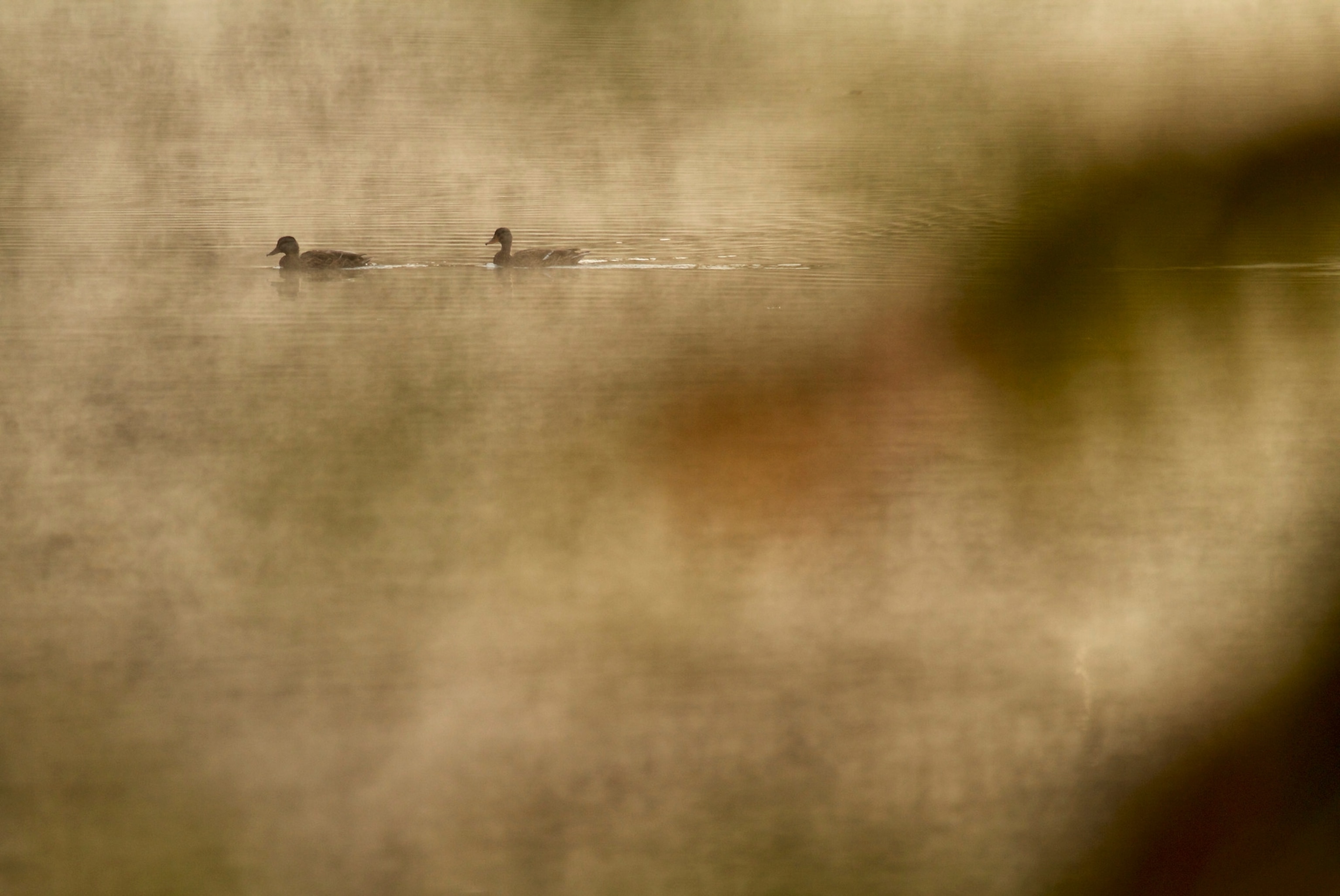
Thoreau’s thoughts had drawn me here, like a migratory fish to its home river. (A long-distance migrant at that—I live in New Zealand.) I began to hear his voice in the 1970s through quotes from Walden and other writings that were becoming popular with environmentalists, alternative lifestylers, and truth seekers. An earnest soul, not wanting my spiritual arteries clogged by the fat of material ambition, I warmed to his exhortations:
“Live deep and suck out all the marrow of life.” Check.
“Simplify, simplify.” Check.
“I wished to live deliberately, to front only the essential facts of life . . . and not, when I came to die, discover that I had not lived.” Check and check again.
I still have a T-shirt from those days, screen-printed with ants and the slogan: “It is not enough to be busy; so are the ants. The question is: What are we busy about?”
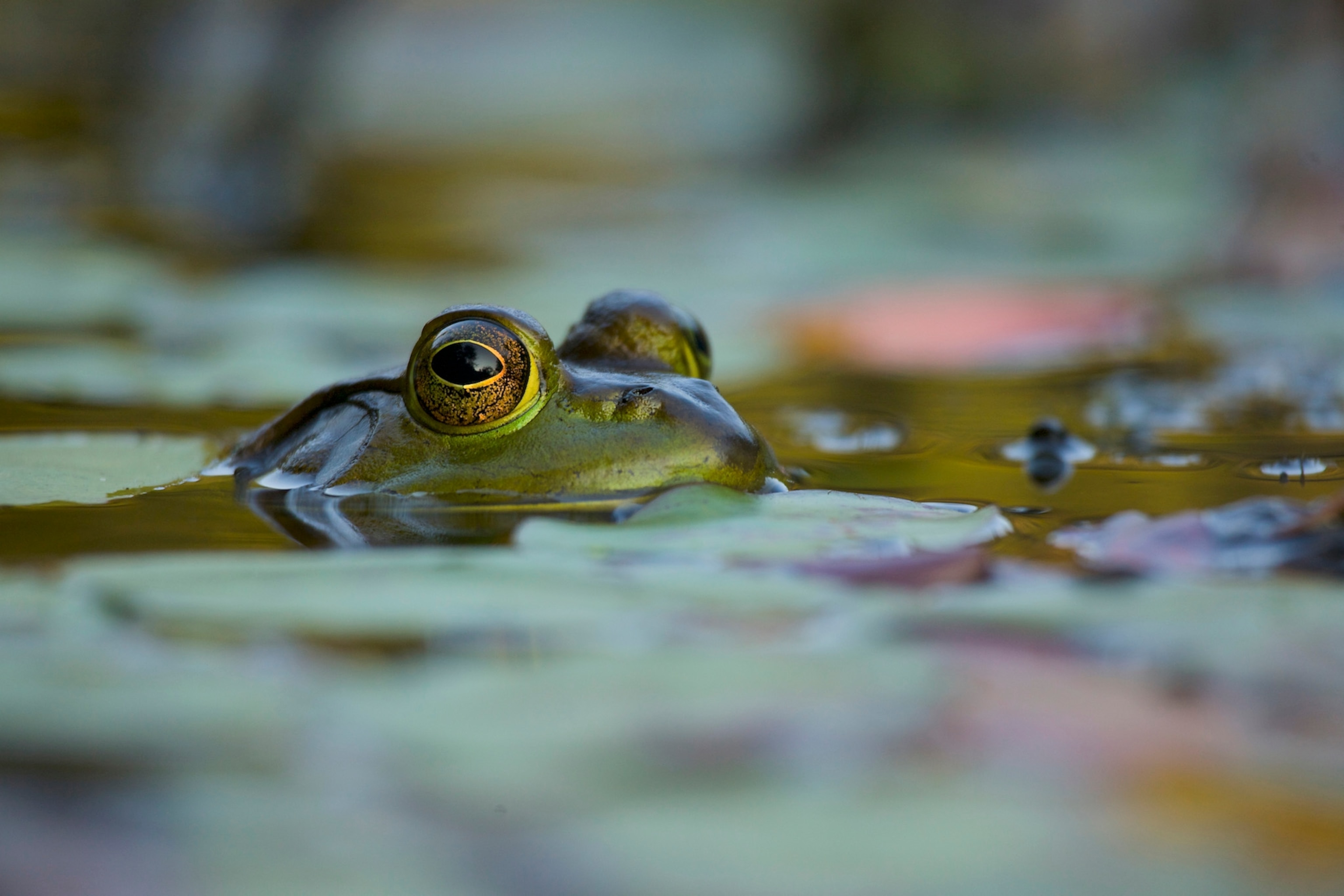
There was another aspect, too. To a biology graduate schooled in the cool detachment of objective science, Thoreau offered a more ecstatic view of the universe. His was a nature that speaks, if we have ears to hear. And its utterances exceed the ability of even a wordsmith like Thoreau to capture them. In 1846, when he took a break from life at Walden to climb Mount Katahdin, in Maine, the exhilaration so overpowered him that all he could express about the moment was a series of literary yelps: “the solid earth! the actual world! the common sense! Contact! Contact!” He sounds like a person who had just met an extraterrestrial. And in a sense, he had. The experience transcended the merely physical.
What I have come to love most about Thoreau is that for him the natural world speaks not only in sublime settings like mountaintops and primeval forests, but also in ordinary places like ponds and parks, scruffy creeks and weedy yards.
“I come to my solitary woodland walk as the homesick go home,” wrote Thoreau in his journal. So it has been for those who follow in his philosophical footsteps—we find ourselves wedded to the world wherever we encounter it.
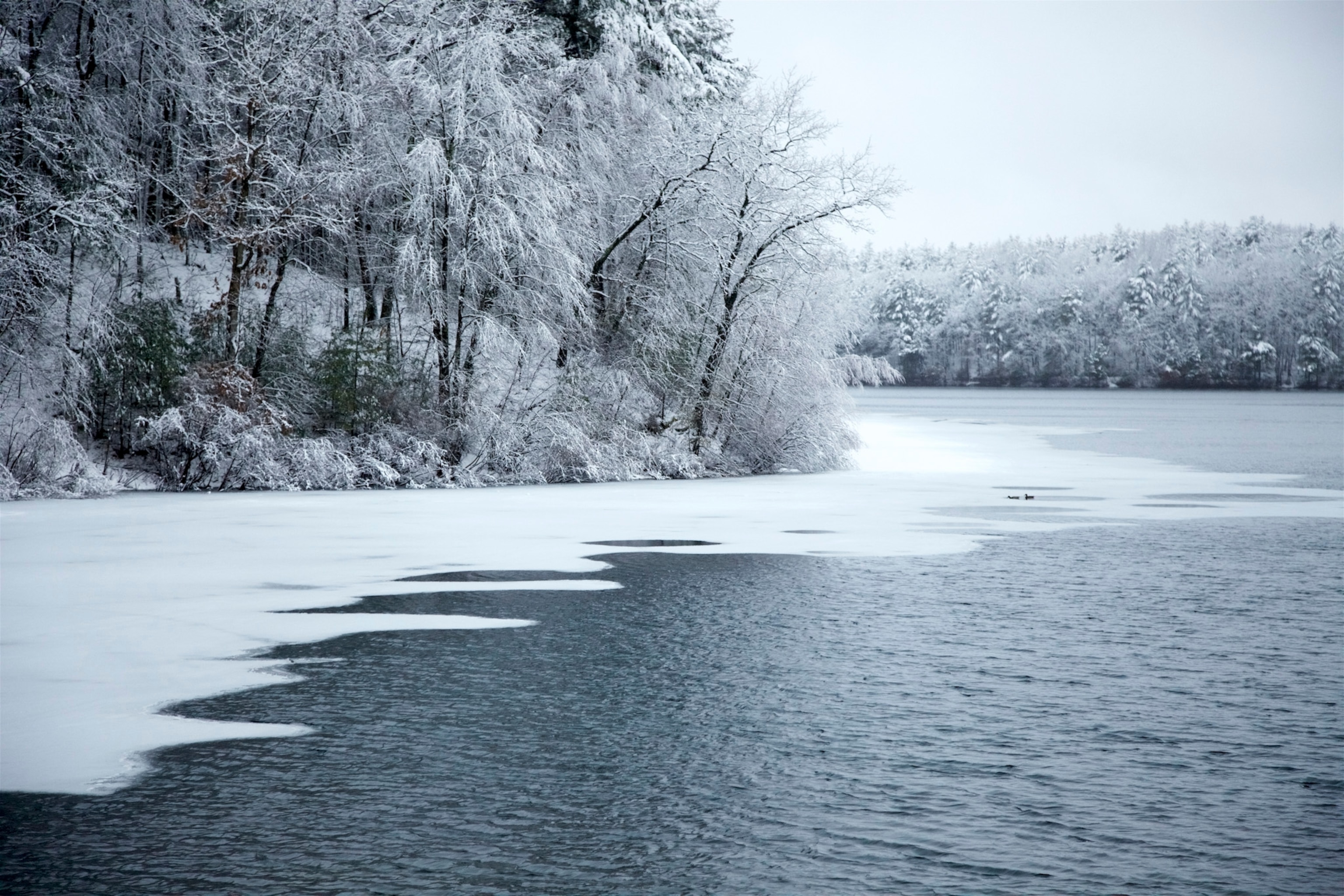
My place of solitude is a streamside path in suburban Auckland. I walk there in the same spirit that Thoreau walked his woodland trails, enjoying a conversation with nature within earshot of a highway. Blocking out the noise of vehicles, I hear the sounds of falling water the way he heard Heywood’s Brook falling into Fair Haven Pond—“inexpressibly refreshing to my senses—it seems to flow through my very bones.” In such moments, outward and inward merge. “What is it I hear but the pure water falls within me in the circulation of my blood,” he wrote. “Thus I am washed thus I drink—& quench my thirst.”
For Thoreau, such savoured moments invariably happened when he was alone. Society was overrated, he believed. “We meet at meals three times a day, and give each other a new taste of that old musty cheese that we are,” he wrote in Walden. Such is our obsession with company, he observed, that we are rarely alone, even in our dreams.
Rather, let a person walk alone in the woods, where a body “imbibes delight through every pore.” For this kind of walking Thoreau preferred the word “saunter,” which he believed was derived from Saint Terre, the Holy Land. A saunterer was a Sainte-Terrer, a Holy-Lander, and every walk a pilgrimage and an awakening.
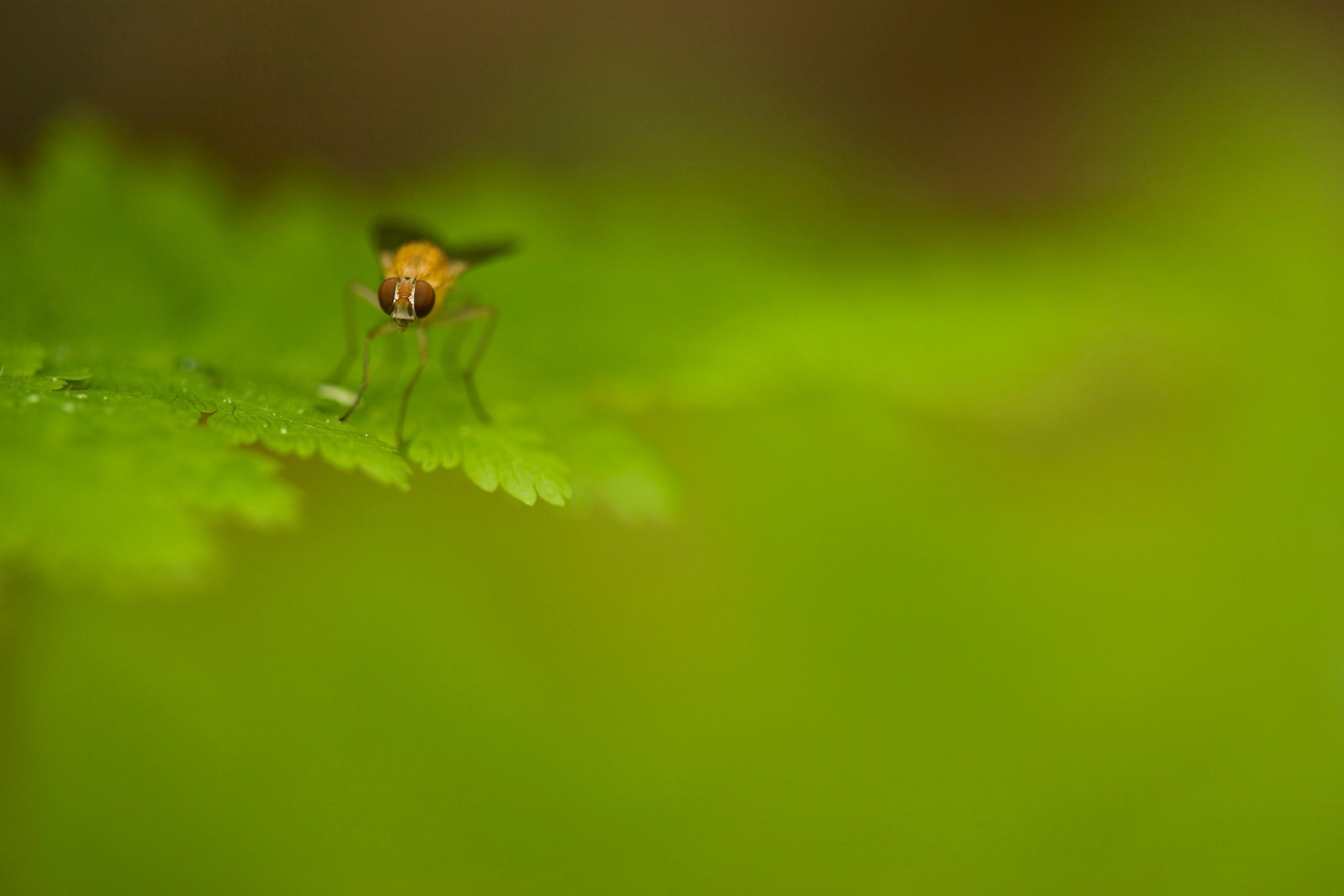
Awakening: shaking off cultural anesthesia to embrace the wildness of the natural world. This was Thoreau’s conclusion after his two-year sojourn in the woods, and this was his conclusion to Walden. On the last page of the book he recounts a believe-it-or-not story that had been going the rounds of New England. A beautiful bug had hatched out of a table made from apple-tree wood that had stood in a farmer’s kitchen for sixty years, from an egg laid in the living tree long before. A warm urn placed on the table had stirred life in the dormant egg, and the farmer had listened for weeks as the insect gnawed its way free.
Such a story was metaphorical candy for a mind like Thoreau’s. “Who knows what beautiful and winged life, whose egg has been buried for ages under many concentric layers of woodenness in the dead dry life of society . . . may unexpectedly come forth,” he wondered.
We are that farmer’s table, and its latent egg. Will we come forth?
